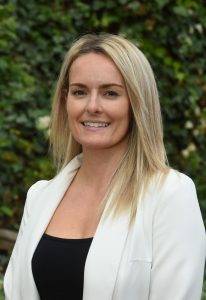Interest and late payment penalties
The annual deadline for self-assessment tax returns is 31 January, which means that returns need to be filed by this date if penalties and interests are to be avoided. Balancing tax payments also need to be made before the deadline.
However, this year, by concession, HMRC will not apply late filing penalties, provided returns are submitted by 28 February, although interest on late payments may still apply from 31 January.
Pension annual allowance tax charge
The pension annual allowance (AA) is the annual limit on the amount of contributions paid to, or benefits accrued in, a pension scheme before the member has to pay tax. The objective of the annual allowance tax charge is to remove the tax relief given to any pension contributions over the annual allowance.
Clearly, this deadline refers to a client’s tax for the 2020/21 tax year, meaning that little can be done from a planning perspective. Although, clients facing a pension annual allowance charge might still have time to choose either:
- Paying the bill themselves; or
- Request that their pension scheme pays it if they qualify for ‘mandatory scheme pays.’
It’s important to recognise the rules for mandatory scheme pays as they are quite specific and if the conditions are met, the pension scheme is obliged to pay the charge on behalf of the member. Those eligible must complete details on SA101 by 28 February.
Also, those wishing to pursue this must submit a request to the pension scheme and provided this is done by 31 July 2022 there should be no interest or late payment penalties.
Mandatory payments criteria
A client can only choose for their pension scheme to make a mandatory payment if:
- They paid more than the standard £40,000 annual allowance to the scheme, and
- Where an individual has an annual allowance charge above £2,000.
The mandatory liability for the scheme is limited to the tax on the excess over £40,000. This means that if a client has a tapered annual allowance because their adjusted income exceeds £240,000 in 2020/21, the scheme does not have to pay the charge on the above payment between the tapered annual allowance and £40,000.
In some cases, the pension scheme may choose to pay the annual allowance charge for a member when asked, even if they don’t have to. This is referred to as voluntary scheme pays.
Voluntary scheme pays window for 2020/21 may have already closed
Some pension schemes may agree to pay the annual allowance charge even if it’s outside the criteria required for a mandatory payment. However, each pension scheme will have its own rules and deadlines on when this might be possible.
For a voluntary payment to be made, the majority of schemes will need plenty of notice. For the 2020/21 tax year, this would usually have been made in August last year, this would ensure the tax is paid on time and to avoid any interest or penalties on late payments.
Scheme v personal payment
Numerous issues can influence the decision of whether to pay the annual allowance charge yourself or ask the pension scheme to make the payment:
- A client may lack the liquidity to make the payment personally.
- For those who can pay the charge themselves, this could potentially reduce their estate for Inheritance Tax.
- Individuals who may be facing a lifetime allowance charge on their pension savings could be reduced by requesting that the scheme pays the annual allowance charge.
What are the penalties?
There are tax penalties for the late filing of returns, late payment, and also interest on late payments. HMRC provides a calculator for taxpayers to estimate what these penalties can amount to.
Remember, there will be no late filing penalties this year provided returns are submitted before 28 February. However, interest can still accumulate from 31 January.
Comment
When making pension contributions as a way of saving towards your financial future, it pays to know whether you’re on the right track. The rules and calculations can be complicated depending on the type of pension you have, your income, and the level of contributions being made by yourself and your employer. Seeking financial advice can help you make the right decisions, increase your retirement income.
How can Nelsons help
Zoe Till is a Senior Associate and Chartered Financial Planner in our expert Investment Management team.
For further advice regarding responsible investments, please get in touch with Zoe or another member of the team in Derby, Leicester or Nottingham on 0800 024 1976 or via our online form.
Contact usIf this article relates to a specific case/cases, please note that the facts of this case/cases are correct at the time of writing.


